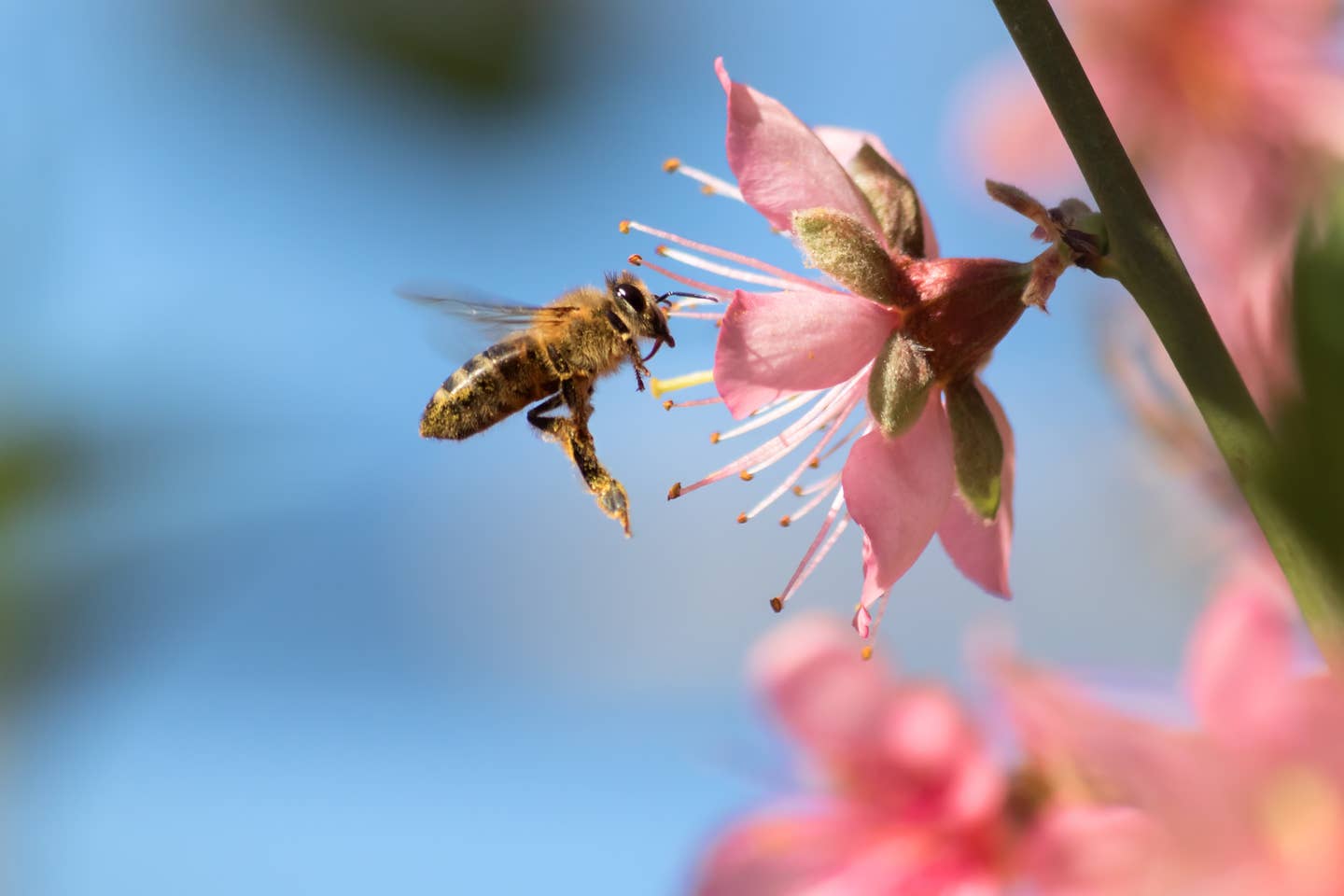
The World’s Bee Population Is Recovering During COVID-19 Lockdown
As shelter-in-place orders march into summer, quarantiners are getting restless, but the Earth is enjoying a much-needed reprieve. One such lucky beneficiary from the curtailing of human activity is the wild bee.
The natural world is stretching and awakening: In China, the coronavirus pandemic has accounted for a reduction of carbon dioxide emissions by 25 percent. In the Philippines, the capital city skyline of Manila has emerged from a cloud of smog, and the view is being admired for the first time in decades. According to NASA, motor vehicle pollution has fallen by one third in the Northeastern United States since restrictions began in mid-March. With this reduction in travel and commuting, it's not just the air that has cleared up: Wild animals have been enjoying more of our shared terrain to themselves, as elephants walk through streets of India and lions take cat naps along on the side of the roadway in Kruger National Park, in South Africa. But of all the creatures enjoying the biggest "home alone" celebration, the bee has the most to celebrate.
Bees Make a Comeback
Bees may be tiny in size, but their impact on the natural world is profound: An estimated 80 percent of flowering plants and one-third of the world's food is pollinated by bees. Without this insect, our environment would look drastically different. According to a BBC article, "Bees and other pollinating insects have a global economic value of around £120bn ($150bn) and contribute around £690m ($850m) to the UK economy every year, according to a study by the University of Reading."
In recent years, the bee population has been threatened, with US honey bees losing 38 percent of their population between Oct. 1, 2018, and April 1, 2019. This disappearance in colonies is known as 'colony collapse disorder,' which the USDA Agricultural Research Service defines as "a dead colony with no adult bees and with no dead bee bodies but with a live queen, and usually honey and immature bees, still present."
The Upside of the Lockdown
The current COVID-19 lockdown is helping to reverse the sharp decline in bee populations in two significant ways. Fewer fumes and pollution particles from automobiles means that bees can more easily smell floral scents that lead them to plants that need pollinating. Another reason that the bee population may be recovering is that, as the BBC noted, "Fewer cars on the roads means other benefits for bees too. The number of bee deaths is likely to fall as car journeys decrease during the lockdown, Brown notes. A 2015 study by Canadian researchers estimated that 24 billion bees and wasps are killed by vehicles on roads across North America every year."
While we may be getting restless as we stay hunkered down in our homes, it is a positive reinforcement to know that the natural world is getting a reprieve as we forgo our routine activities and contribute to less pollution. The bees are clapping their wings.
More From The Beet






